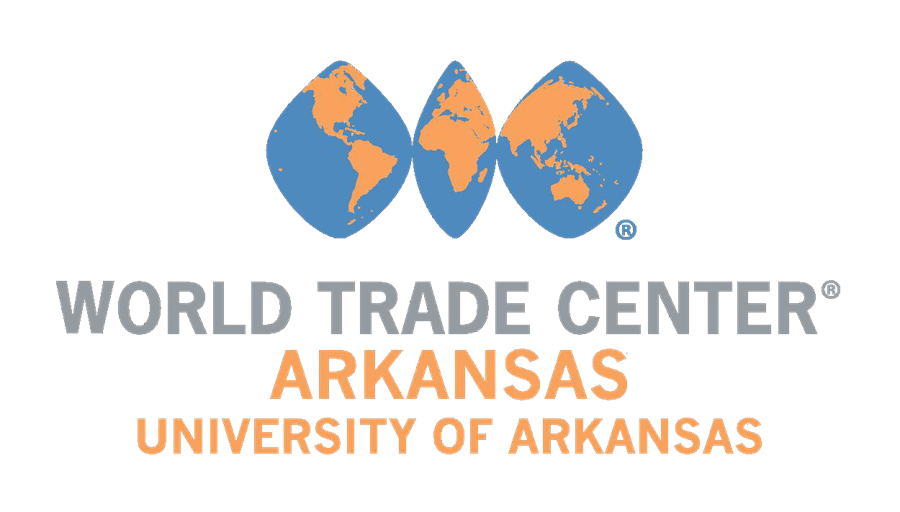ROGERS, Ark. – The Arkansas District Export Council and the World Trade Center Arkansas surveyed state companies to assess the potential impact of the anticipated steel and aluminum tariffs on their businesses. The center and council released the survey on March 15 and used the results to inform lawmakers and government officials in an official report, summarized here.
“Exports of American goods and services constitute a critical foundation of the U.S. economy and are a key component of economic growth both nationally and in Arkansas,” said Lenka Horakova, chair of the Export Council. “In addition to specific information, we asked Arkansas businesses to communicate their thoughts, concerns and observations about the proposed tariffs in order to ensure those views are heard by our elected officials and trade negotiators in Washington.”
Nearly 40 percent of companies said that their costs will increase under the tariffs. Approximately 34 percent said they anticipate a negative impact on their business, and 16 percent stated that they would be forced to lay off workers and suffer a loss of business. Only 10 percent said that the tariffs will have no impact.
Eighty-four percent of these same companies indicated that their products use steel or aluminum in their supply chain. Forty-three percent of the companies surveyed stated that their primary reason for importing steel or aluminum articles was that these articles are in short supply in the United States. Approximately 13 percent say the articles they use are not available or in short supply in the United States.
“Based on these responses, Arkansas companies are saying that these tariffs would cause a burden for them, said Melvin Torres, director of western hemisphere trade for the World Trade Center Arkansas.
The companies were comprised of four groups based on their position in the supply chain: component fabricators; manufacturers and agriculture producers; end users and services; and retailers, suppliers and distributors. China, Mexico and Canada are the top three countries from which these companies import steel and aluminum articles, according to the responses.
“The tariff negotiation with China and the NAFTA negotiations become more critical for Arkansas, based on these responses,” Torres said. “This is because the majority of companies that responded indicated that China is their biggest supplier and because one third of all Arkansas exports go to Canada and Mexico. These trade relationships directly support more than 110,000 jobs in Arkansas.”
Torres, who also has experience in international banking and finance, observed that there is also a potential for these tariffs to create uncertainty in the financial services sector.
“This is always an economic concern,” he said. “As an example of the supply chain effect in light of the high response rate from the construction and real-estate industries, the increased costs to this sector could potentially translate to consumers. This combined with the current increase in prime interest rates for home and construction loans could create an environment in which loan availability is reduced. The impact to the financial services sector could potentially create an economic ripple effect similar to 2007 and 2008.”
Torres also observed that of the Arkansas companies that elected to respond to the survey, most of them rely more heavily on steel and aluminum from China compared to the rest of the United States.
“According to Department of Commerce reports released earlier this year, Canada is shown as the number one exporter of steel and aluminum to the United States,” Torres said. “This represents 17 percent of steel imports and 43 percent of aluminum imports in 2017 for the entire U.S., whereas China represented just over 2 percent of steel and 10.5 percent of aluminum imports. Overall, the top five suppliers are Canada, Brazil, South Korea, Mexico and Turkey. Furthermore, U.S. reliance on imported steel is declining.”
For more information about the survey, contact Melvin Torres, director of western hemisphere trade at the World Trade Center Arkansas at melvint@arwtc.org or call 479-418-4822.
About the World Trade Center Arkansas: The mission of the World Trade Center Arkansas is to grow trade and increase Arkansas exports by connecting Arkansas businesses to the world through international trade services. The Center is part of the University of Arkansas and serves as the trade promotion arm for the Arkansas Economic Development Commission. For more information and valuable updates, please follow the Center on Facebook and Twitter, or subscribe to the World Trade Center Arkansas newsletter.
About the University of Arkansas: The University of Arkansas provides an internationally competitive education for undergraduate and graduate students in more than 200 academic programs. The university contributes new knowledge, economic development, basic and applied research, and creative activity while also providing service to academic and professional disciplines. The Carnegie Foundation classifies the University of Arkansas among only 2 percent of universities in America that have the highest level of research activity. U.S. News & World Report ranks the University of Arkansas among its top American public research universities. Founded in 1871, the University of Arkansas comprises 10 colleges and schools and maintains a low student-to-faculty ratio that promotes personal attention and close mentoring.
Topics
Contacts
Sam Cushman, Strategic Communications and Public Relations
World Trade Center Arkansas
479-418-4803,
